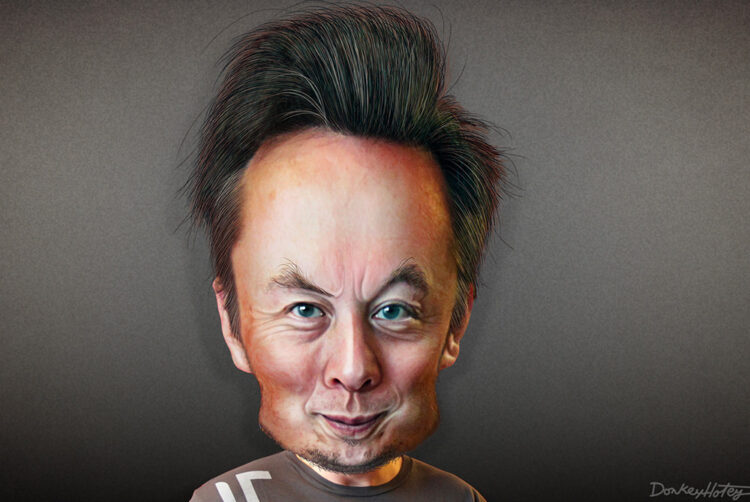Is telling advertisers to ‘go fuck themselves’ a winning strategy?

Opinion
Twitter is too small to have such a big mouth calling the shots, writes the editor.
Like Elon Musk, I just can’t help myself.
I can’t help responding to yet another public own goal by the owner of Twitter, who, as one of his many barmy decisions during his catastrophic year in charge, insists we all call the social media site X.
X as in X-rated, it now turns out, because Musk literally went on stage Wednesday night and told advertisers to “go fuck themselves” for daring to stop spending on Twitter ads.
Why it matters
This rant is different because we’ve never seen anything like this before.
A reminder: advertisers have turned away from Twitter because it is not a safe space to advertise.
If you have advertised on Twitter lately, there is a reasonable chance that your ads will appear next to racist, homophobic, anti-Semitic, sexist and other content.
That’s it. There is no conspiracy. There is no blackmail. There is no attack on freedom of speech.
Musk apparently does know the business he bought a year ago well enough. “It is a business that lives on ad revenue, and ad revenue is discretionary based on the premise that it’ll flow to places that work for the advertisers,” points out James Coulson, EMEA managing partner, Consultancy at digital marketing agency Kepler.
“Attacking advertisers and agencies that are not obliged to invest in X and have their own corporate values and behavioural standards to think about simply makes matters worse and could create a downward commercial spiral from which it would be difficult to recover,” Coulson warns. “It is both fascinating and painful to watch.”
Twitter is too small to have such a big mouth
In fact, it’s what should happen in a free and democratic society.
Advertisers are choosing to spend on whatever media platforms they like and rejecting others they don’t like. Twitter is not a “public square”, as Musk has previously suggested — it’s a private media company, now saddled with huge debt and backed by Saudi Arabian investment (not just Tesla stock).
But, as The Media Leader has previously argued, there’s a more fundamental reason why advertisers have no patience for Musk and his childish antics.
They just don’t need Twitter.
It has too small an audience to be worth whatever lies behind this constant whining and self-pitying.
As Nick Manning, a media agency founder and columnist for The Media Leader says, “There are many thousands of advertisers who don’t yet use Twitter. They stand no chance of persuading those to try it.”
“The sales teams at Twitter used to have to build relationships to persuade advertisers in the absence of a strong sell,” Manning explains. “If I were a sales person at Twitter now I wouldn’t be able to function knowing that the people I am trying to attract will simply point at Musk.
But where are the big agency groups in all of this?
Earlier this year, WPP’s media-buying division GroupM declared that Twitter was now safe (probably because nominal ‘CEO’ Linda Yaccarino pulled a favour, as Manning suggested on a recent episode of The Media Leader Podcast.)
Now, nothing from any of them.
“This is far worse than trying to embarrass others who have left,” Manning explains. “And the ones who don’t use it have no obligation to sat they don’t or why. So no new business for the sales teams to win and loss of existing users. Leaving just about nothing.”
But wait, what about supporting a diversity of media?
“Elon Musk is playing to his base and his base loves this type of response, the middle finger to the elite establishment,” a social media planner comments.
Nor is this strictly a fringe point of view — an independent media agency founder privately confides that they have sympathy with Musk for having to deal with an advertising community that, he fears, are increasingly trying to dictate what media owners do ‘editorially’.
Why Twitter has never played a significant role in our media plans
“Governments should legislate and bad people should be held to account, but advertisers can’t control content. I agree it’s their money and they can use the channel or not… but withholding spend with the aim of changing editorial decisions is not right.”
There are deeper questions to be asked over whether advertisers are really willing to “walk the walk” when it comes to supporting a diverse range of media owners, as has been discussed in this publication many times over GB News, which has also been subject to advertising boycotts.
Musk’s ‘Howard Hughes phase’
As well-known ad agency strategist Kevin Chesters says: “When you’re the world’s richest man who lives free of consequence, you can have a $44bn public tantrum. It’s just a little embarrassing when you do.”
To be charitable, it’s understandable that Musk would be frustrated. Picture the scene: after having so quickly developed apparent immortality as a pioneer of electric vehicles and space engineering, only to be flummoxed by some quirky social media operation that is barely used outside of the elite user groups of journalists, celebs and politicians.
That means that “The cult of Elon” is beginning to lose the battle with commercial realities”, according to Coulson.
“His extraordinary business track record is based on having products with first mover advantage and superior product,” Coulson adds. “He has never really had to engage with the mechanics of traditional marketing — Tesla is famous for not investing in advertising.”
An alternative explanation is that Musk has “entered his Howard Hughes phase”.
A social media strategist commenting on LinkedIn after news broke of Musk’s f-bomb rant pointed out that Hughes is a fitting cautionary tale for how to describe Musk’s state of mind. Hughes, the original eccentric with a “fuck you”-level of wealth, acquired the then-famed film production studio, RKO Studios, and then almost ran it into the ground in a period so horrific it was described by one historian as a “systematic seven-year rape”.
One prays we never end up using such language to describe Musk’s reign of terror, but the omens are not good.
Editor’s comment: This article was amended after publication to include Coulson’s contribution.
 Omar Oakes is editor-in-chief of The Media Leader and leads the publication’s TV coverage.
Omar Oakes is editor-in-chief of The Media Leader and leads the publication’s TV coverage.



